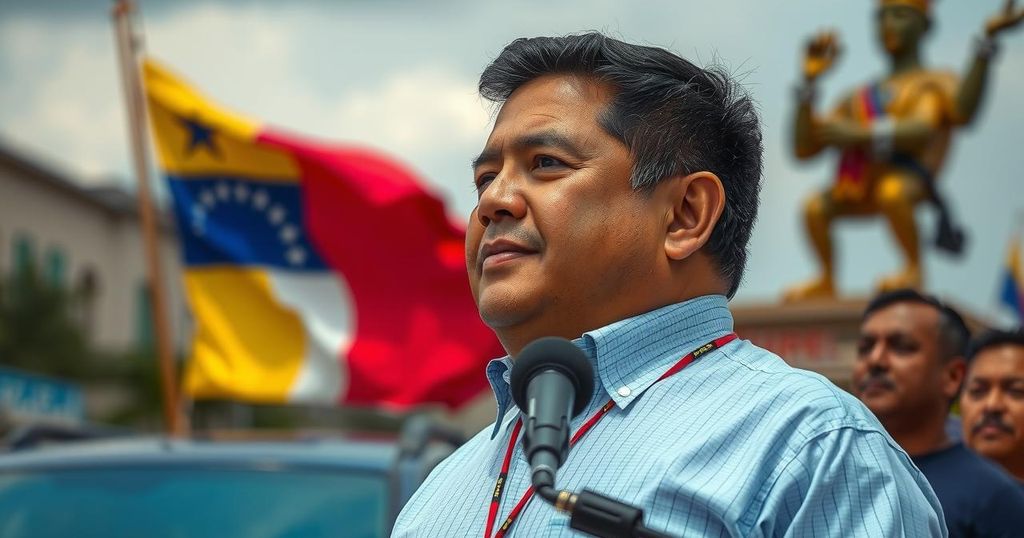Edmundo González, the Venezuelan opposition leader, seeks international support to claim victory over Nicolás Maduro following the contested July elections. Meeting with Panamanian President José Raúl Mulino, he presented alleged electoral documents to bolster his case. Amid regional shifts, including Colombia’s President Petro distancing from Maduro, González’s impending return to Venezuela raises questions about the future political landscape amid ongoing governmental repression.
In Panama, Edmundo González, the self-exiled Venezuelan opposition leader, intensified his campaign for international support regarding his claim of victory over Nicolas Maduro in the presidential election held in July. During a recent meeting with Panamanian President José Raúl Mulino, González presented what he asserted were original electoral tally sheets demonstrating his supposed decisive win. He has previously sought endorsements from U.S. President Joe Biden, as well as leaders from Argentina and Uruguay, in a bid to consolidate support in his favor.
The significance of González’s claims is underscored by Colombia’s President Gustavo Petro’s decision to not attend Maduro’s inauguration, indicating a shift away from previously amicable relations with the embattled Venezuelan regime. González aims to capitalize on this regional discontent during his diplomatic endeavors, even as he faces significant obstacles, including his government’s order for his arrest and continued control over Venezuela’s military and institutions.
Despite the opposition’s longstanding accusations of electoral fraud during the July elections and the governmental crackdown on dissent, González plans to return to Venezuela, where he intends to claim the presidency. His return carries significant risks and uncertainty, as Maduro’s forces remain firmly entrenched in power, ready to confront any challenge to their authority.
Additionally, Panama has emerged as an ally to González, having initially called for an investigation into the Venezuelan electoral results. President Mulino reaffirmed Panama’s support for González during the meeting, emphasizing the legitimacy he represents amid the ongoing political turmoil. \n
González expressed concern about the Venezuelan government, calling its actions a blatant theft of democratic processes, while Petro emphasized the importance of recognizing election integrity, declaring elections conducted without freedom should not be acknowledged.
The upcoming political landscape is rife with tension as González prepares for his return amidst the backdrop of a worsening humanitarian crisis in Venezuela. His position reflects a persistent struggle for governance amidst dire conditions, ultimately setting the stage for a potentially explosive confrontation as Venezuela’s political future hangs in the balance.
The political situation in Venezuela has become increasingly precarious following the controversial presidential election held in July, where Nicolás Maduro claimed victory amidst widespread allegations of electoral fraud and irregularities. Edmundo González, a key figure in the opposition, has emerged from exile to challenge these results, seeking international endorsement and support to galvanize the opposition’s efforts. The context is critically shaped by international dynamics, including actions taken by neighboring countries like Colombia and Panama, which have expressed discontent towards the Maduro regime. González’s return to Venezuela aims to assert his claim to presidency, further complicating an already fraught political environment characterized by governmental repression and civil unrest.
In summary, Edmundo González’s attempt to reclaim power in Venezuela embodies the larger struggle for democracy in a country facing severe political repression. His efforts to secure international backing, particularly in Panama, demonstrate the intricate web of regional politics. As he prepares for a controversial return to Venezuela, the outcomes of his endeavors remain uncertain, setting the stage for a potential escalation of conflict as opposing factions clash over the nation’s governance and future direction.
Original Source: www.newsweek.com






